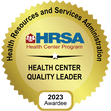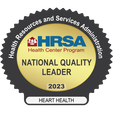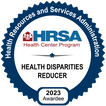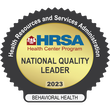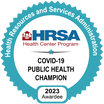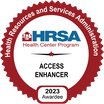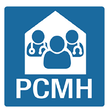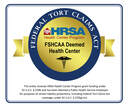By Melissa Parker
Taylor works as CCWV’s clinical quality liaison and coordinates the LUCAS Bus visits for the Clay and Big Otter clinics. Part of her job is to ensure the success of each LUCAS visit. One way she accomplishes that is by filling all the appointment slots.
When Taylor spoke to her dad earlier that day, she used this fact about her job responsibilities to her advantage, trying to convince her dad to register for a screening appointment.
“I need the quality numbers,” she told him.
In honesty, Taylor had been worried about her dad’s health for the better part of a year. He had lost weight and was having chronic back pain. But even more concerning, her father, Allen Barron, had a significant family history of cancer.
Although he had repeatedly declined her request to be screened that day, Taylor was thrilled when she saw her dad’s vehicle pull into the parking lot just before the LUCAS Bus staff broke for lunch.
“I quickly got his paperwork completed and the guys scanned him,” remembered Taylor, who typically watches the screening images populate. “I am not a radiologist, but I knew when I saw my dad’s scan that it was far from normal. It was like a gut punch… I couldn’t breathe.”
After what Taylor described as the longest 24 hours of her life, the results came back to show that Barron, a 63-year-old Clay County resident, had a 4-centimeter mass in his left lung’s lower lobe, stage 2B invasive squamous cell carcinoma.
“When we found out dad was sick, my world crumbled,” said Taylor. “My dad is my best friend. He is a hardworking and selfless man who always made sure his family had everything they needed. He’s an outdoorsman who loves to fish and hunt, and his grandchildren are his life. He’s the one I go to when I need advice. I had no idea how to navigate the world without the possibility of him in it.”
Fortunately, things moved fast on the medical side, and a treatment plan was quickly developed for Barron, who worked as a welder for 20 years until he became disabled in 2008.
“That’s a perk of working with healthcare professionals,” said Taylor. “Dad had a PET scan scheduled within a few days, as well as a consult with a pulmonologist, a cardiothoracic surgeon, and then an oncologist.”
Since Barron’s tumor was against his chest wall, his cancer team decided he would initially undergo chemotherapy and immunotherapy, in hopes of shrinking his tumor and making surgery less complicated.
“Dad started chemo in early June of last year and ended in August,” said Taylor. “It was rough. Then he had a lobectomy in September, which made chemo look like spring break. I was afraid he was going to give up. He lost a significant amount of weight and was so fragile.”
Over the past six months, Barron has been undergoing aggressive treatment for his lung cancer, and as a result, Taylor said her dad has grown stronger each day. He will do immunotherapy monthly over the next year and have scans every three months.
For Taylor, one thing is certain: LUCAS Bus saved her dad’s life.
“If LUCAS Bus had not been at Community Care of Clay that day, my dad would have never been screened,” she said. “Where else could you just walk up, in your rural hometown, and get a lung cancer screening? My dad would not have survived this cancer without that screening last March. His tumor was large, and we caught it just in time.”
Taylor, who recently got a tattoo in honor of her dad, said she hopes her dad will be an example that people should not hesitate to be screened.
“Even without symptoms, if you meet the guidelines to be screened, make it a priority and part of your routine healthcare,” she said. “If cost is a concern, let us know. We will discuss it with LUCAS. They have funding to help.”
LUCAS Bus travels to 42 of West Virginia’s most rural counties, providing lung cancer screenings to individuals who meet screening guidelines, including those who are 50-80 years old, currently smoke or quit within the past 15 years, have a smoking history of at least 20 packs a year, and have no symptoms of lung cancer. Insurance coverage varies, and individuals are encouraged to check with their insurance company carrier to determine coverage. Uninsured patients living in West Virginia who meet eligibility requirements may receive screening on LUCAS through the generosity of grant funding and donations.
For more information about LUCAS Bus, visit https://cancer.wvumedicine.org/about-us/programs/mobile-cancer-screening-program/lucas.

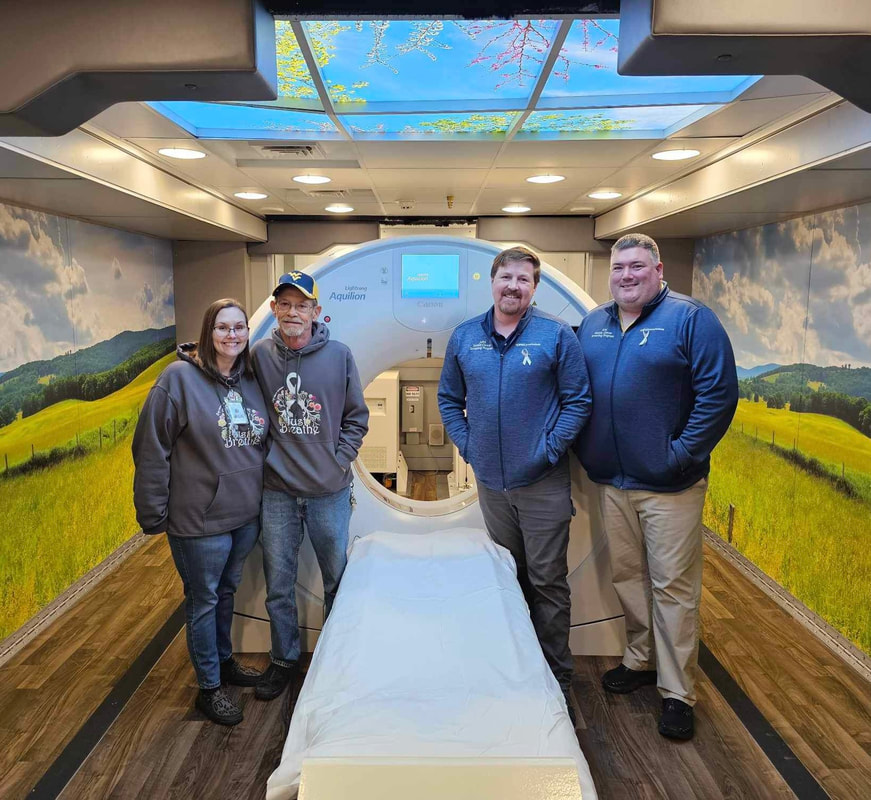
 RSS Feed
RSS Feed
